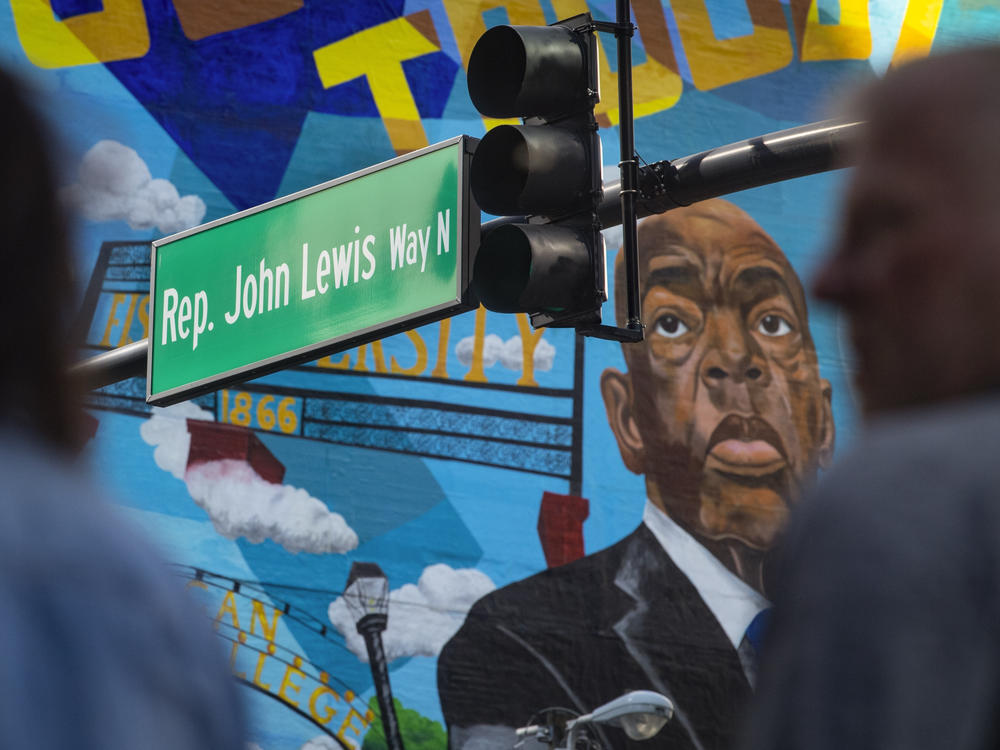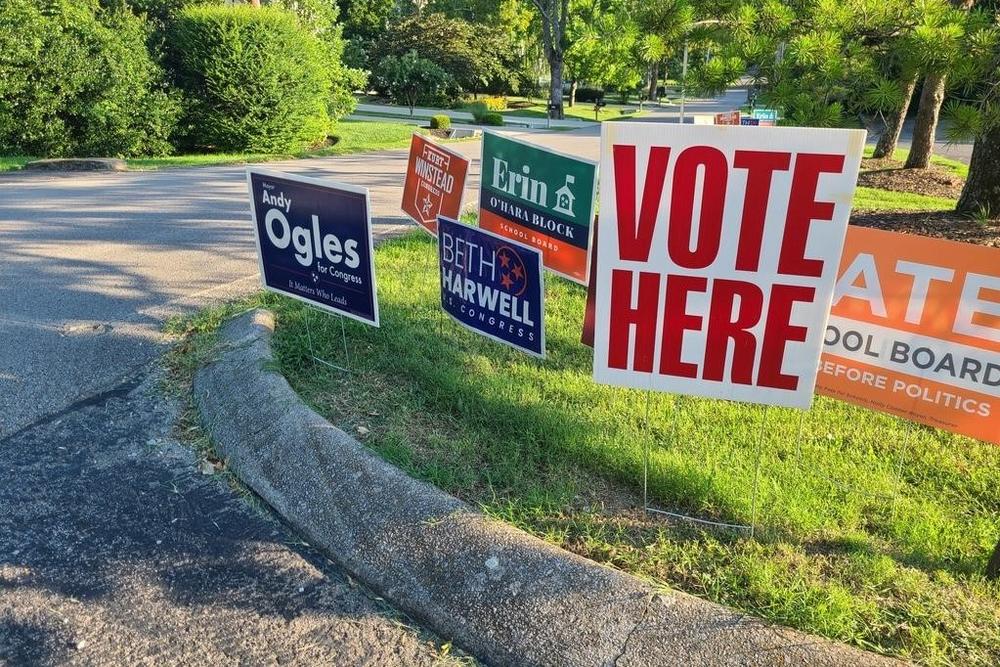Section Branding
Header Content
Today in Nashville, 9 Republicans run for a seat redistricted out of Democrats' reach
Primary Content
NASHVILLE, Tenn. — Thursday, voters in Nashville won't see their congressman's name on the ballot. Jim Cooper decided to sit out the race after redistricting when GOP lawmakers in the state redrew the boundaries of the 5th Congressional District into three separate districts more likely to elect a Republican than a Democrat, like him.
Cooper, a moderate Democrat, has represented the district for two decades and had survived previous redistricting battles, but the state capital has never been carved up quite like this in its entire history.
"We've been a state capital that spoke for itself for at least 230 years," Cooper said in an interview earlier this year. "We've been Democratic for longer than anybody can count — at least 100 years."
When the Republican-controlled Tennessee legislature gathered to redraw congressional maps earlier this year, they had a goal. They wanted to gain a seat in the U.S. House, so they spliced Davidson County, home to Nashville, into three more rural Republican-leaning districts.
That could dilute the Democratic stronghold just enough to give the GOP another seat on their quest to take back the House this November.
In January, after the maps were approved, Cooper had had enough.
"I know how politics works. I've run probably more than any living politician. And when they stack the deck against you, you're wasting your time," said Cooper.
Democrats argue that Nashville could have been kept whole. Each congressional district in Tennessee needs to have about 767,000 people. Nashville has roughly 715,000, and it's quickly growing, meaning that Republicans could have added one extra mid-size city instead of splitting it into three different districts.
"They very carefully tried to ensure that Davidson County could not necessarily be the predominant power in any of those three," says Kent Syler, a political science professor at Middle Tennessee State University.
Republicans have defended their maps, saying they followed the law. Tennessee House Speaker Cameron Sexton says he thinks the split will help, not hurt Nashville.
"I think Davidson will gain more representation. It never hurts to have more people in Washington fighting for you," says Sexton.
The Republican candidates
If money talks, then Republican Kurt Winstead's campaign fund is yelling. He's raised $900,000 this cycle, the most of any of the nine GOP candidates running in the 5th District. The retired Tennessee National Guardsman likes to reference his time in the military on the campaign trail, including a time he toured a hospital in Iraq.
Other top fundraisers are Maury County Mayor Andy Ogles and Beth Harwell, Tennessee's first female House speaker.
Harwell has raised a little over $800,000 so far. Ogles has raised $200,000, and he's gotten an additional boost from Super PACs — pouring more than half a million into the race on his behalf.
Former President Donald Trump could be a big factor in this race. He hasn't endorsed any of the current candidates, but in January, he endorsed Morgan Ortagus, who worked in the Trump administration. Ortagus has since been removed from the ballot by the state party.
After being kicked out of the race, Ortagus endorsed Kurt Winstead and joined his campaign. That set up the sort of political jockeying that now has party insiders wondering who might get Trump's blessing.
"Any endorsement he would make, even at this late stage of the game, would be a huge game-changer," says Rick Williams, a conservative political activist and former Davidson County co-chair for Trump's presidential campaign.
With or without the former president's blessing, loyalty to Trumpism is a huge theme in this race. Several candidates still float Trump's false claim that he won the 2020 election. And, when candidates were asked about impeaching President Joe Biden at a debate in Maury County, four of them said they would.
In one district, a progressive takes a chance on the math
Odessa Kelly, a Nashville native, worries that whoever is elected won't be fighting for her. She's Black and gay, and she says these maps will weaken the power of Black and brown voters.
"There is no Republican that can accurately represent me, my values, my morals and my thoughts. There's none. There's zero," says Kelly. "And what they did is tried to dilute that."
Kelly is running as a Democrat in the redesigned District 7. That's probably her best chance. According to Census data, out of the three newly drawn districts in and around Nashville, it has the highest percentage of Black voters — close to 18%.
"I'm not going to lay down and take this," Kelly says. "And neither should anyone else who believes in the fundamental ideas of America where everyone has a right to their voice and a right to be heard. Because that's essentially what they took away."
But it will be an uphill battle. She'll be facing Republican incumbent Mark Green, who is running for his third term.
Tennessee is often referred to as a "red state" politically, but it's more complex than that. In the last presidential election, 60% of the state voted Republican, but they've controlled nearly 80% of U.S. House seats.
And if the Republican's plan goes their way this November, they'll control nearly all of them. Grabbing eight seats, while Democrats would only control one in Memphis.
Copyright 2022 WPLN News. To see more, visit WPLN News.
Correction
An earlier version of this story said the primary election was Tuesday. In fact, the primary election is Thursday.
Bottom Content


